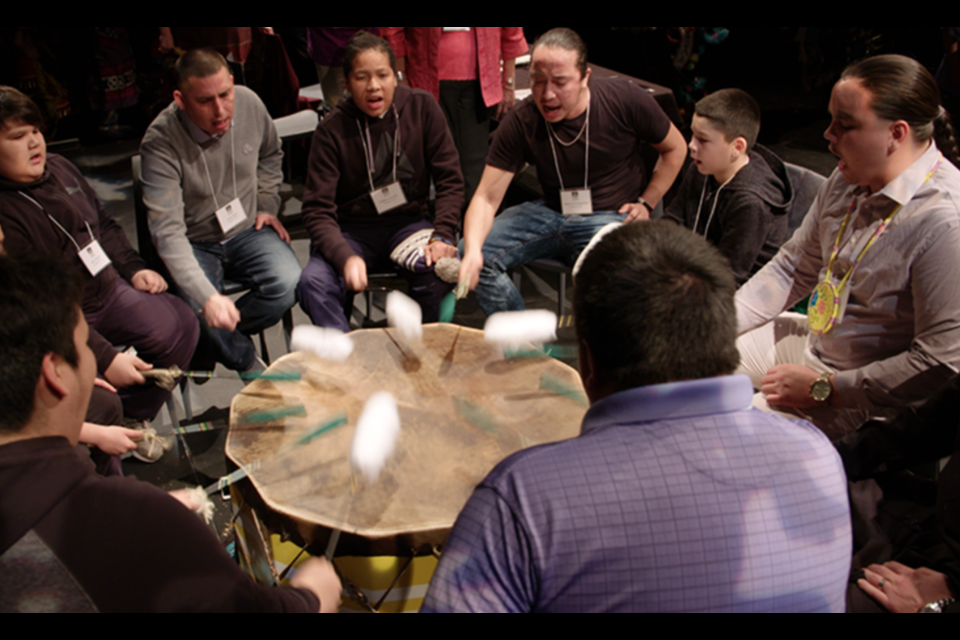THUNDER BAY--Indigenous Friendship Centres across the province of Ontario play a crucial role in supporting community members and Indigenous people living in urban environments. They are vital in their effort to provide various programs and services to urban Indigenous peoples.
In Canada there are approximately 118 friendship centres, with the Ontario Federation of Indigenous Friendship Centres representing the collective interests of 29 Friendship Centres across the province. These centres are focal points within urban areas for Indigenous people to gather, interact, connect with each other and have access to culturally relevant services.
According to OFIFC, a Friendship Centre’s vision is one aimed at “Improving the quality of life for Indigenous people living in an urban environment by supporting self-determined activities which encourage equal access to and participation in Canadian society and which respect Indigenous cultural distinctiveness.”
The United Native Friendship Centre in Fort Frances, (UNFC) describes its primary responsibility as one which “serves Aboriginal people with special services in the fields of social, educational and cultural development while, at the same time, building a bridge of understanding between Native and non-Native people.”
UNFC offers a variety of programs including an Aboriginal Health and Wellness program that promotes healthy lifestyles, culture-based programming and healing. It also supports networking and integration, so that individuals can receive the guidance needed to help build healthy relationships and activities.
Recently UNFC, in partnership with the National Film Board of Canada, produced a short film that offers a “snap-shot of life in Fort Frances, Ont. and how its community members prepare to gather in a special place that will bond their hearts and minds.” The film titled Urban-Indigenous-Proud acknowledged that Indigenous people living in urban areas recognize Indigenous friendship centres “were built as a place to feel like home as places of belonging.”
The Film shows young Indigenous children learning about Smudging and the 7 Grandfather Teachings, two very important culture-based traditions. Indigenous teens were taking part in outdoor traditional activities such as snowshoeing. Another group was shown learning Ojibway and about traditional food. Each of these activities were being taught by Elders who symbolize Indigenous culture, and traditions and who are integral leaders who help future generations learn about their history, culture, traditions and language.
Throughout the film the underlying theme was to foster self-respect and identity. Friendship Centres are not-for-profit and charity corporations that are mandated to serve the needs of urban Indigenous people by providing culturally appropriate services in urban communities.
Recently, the Ontario Government announced it is providing funding to the Ontario Federation of Indigenous Friendship Centres to help raise awareness, reduce stigma and support Indigenous-led mental health and wellness initiatives. The funding will support access to cultural-based workshops, traditional healing activities and educational initiatives that promote self-respect and identity; a goal that all Ontario Indigenous Friendship Centres strive to emulate in each of the programs they offer.
The Thunder Bay Indigenous Friendship Centre is one of the “original six” Friendship Centres in Ontario. It was founded in 1964, incorporated in 1968 and became a founding member of the Ontario Federation of Indigenous Friendship Centres, which was incorporated in 1971.
It, too, offers a variety of programs including and Indigenous Healing and Wellness program. The Centre focuses on several key goals which include:
- To promote cultural heritage and pride by incorporating cultural awareness, traditional teachings, and access to Elders through service delivery.
- To link clients to emergency services, such as referrals to women’s shelters, transition homes, and crisis services.
- To provide support services directly to victims of family violence. (counselling & support groups).
- To support violence free lifestyles and increase the public’s awareness on family violence issues, via educational workshops and committee representation.
Each Friendship Centre in the province of Ontario is managed independently of the OFIFC and offers supportive programs and services that are needed in their community. They continue to be a place of acceptance and well-being for Indigenous peoples. They pursue and support programs that promote and teach Indigenous history, culture, traditions and language.



.png;w=120;h=80;mode=crop)